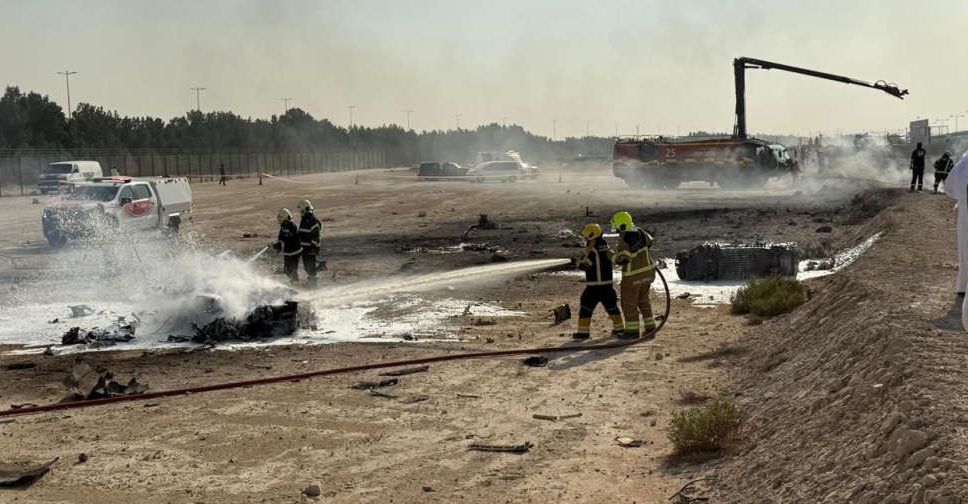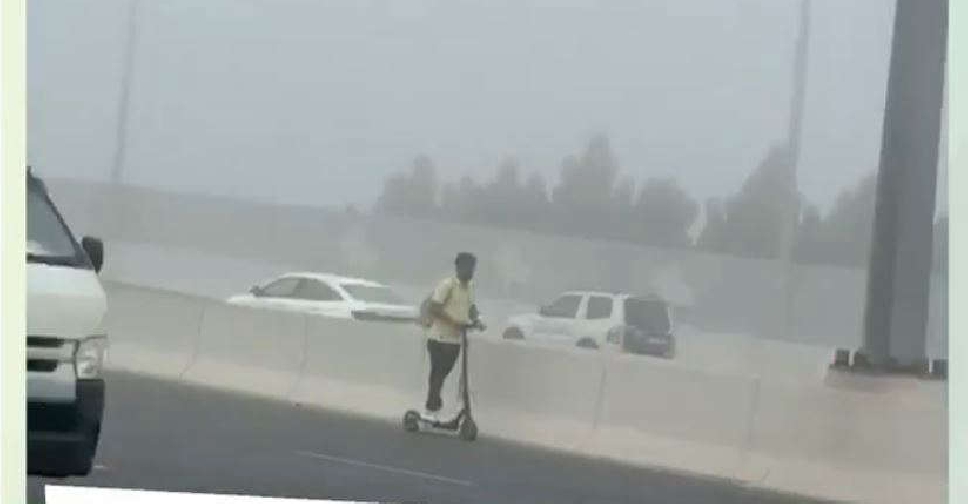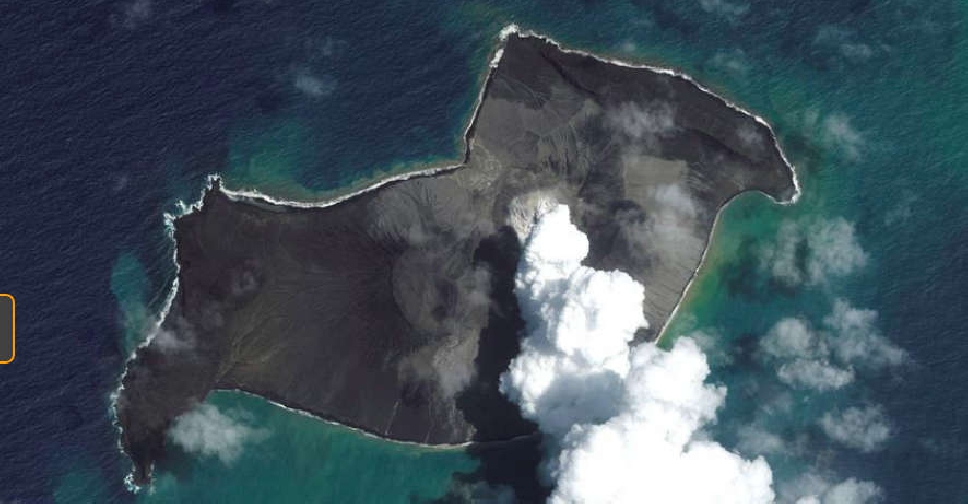
Two New Zealand navy vessels carrying disaster relief will arrive in Tonga on Friday, the first international supplies to reach the Pacific island nation reeling from a volcanic eruption and tsunami.
Hundreds of homes in Tonga's smaller outer islands have been destroyed, and at least three people have died, after Saturday's devastating eruption which the government called "an unprecedented disaster".
With communications badly hampered by the severing of an undersea cable, information on the scale of the devastation so far has mostly come from reconnaissance aircraft.
New Zealand's foreign ministry said the Tongan government has approved the arrival of HMNZS Wellington and HMNZS Aotearoa in the COVID-free nation, where concerns about a potential coronavirus outbreak are likely to complicate relief efforts.
"The vessels are expected to arrive in Tonga by Friday, depending on weather conditions," the ministry in a statement.
A second New Zealand Defence P3 Orion surveillance flight will fly over Tonga and Fiji on Wednesday, the ministry added, to assess the damage caused by the tsunami.
The eruption of the Hunga Tonga-Hunga Ha'apai volcano sent tsunami waves across the Pacific Ocean when it erupted with a blast heard 2,300 km away in New Zealand.
Waves reaching up to 15 metres hit the outer Ha'apia island group, destroying all of the houses on the island of Mango, as well as the west coast of Tonga's main island, Tongatapu, the prime minister's office said.
New Zealand said power has now been restored, and clean-up and damage assessments are ongoing. Relief supplies are being distributed by Tongan authorities.
Tongan Prime Minister Siaosi Sovaleni has met with the head of diplomatic missions based in the country to discuss their support, the statement said.
Australian Prime Minister Scott Morrison said at a news conference in Canberra that he hoped to speak with Sovaleni later on Wednesday.
"It is a very difficult environment to be operating in, the ash clouds and things of that nature. Our defence forces have stood up their operation and are deploying as necessary, as directed," Morrison said.
Tonga is still largely offline after the volcano took out the sole undersea fire-optics communication cable.
International mobile phone network provider Digicel has set up an interim system on Tongatapu using the University of South Pacific's satellite dish, the New Zealand foreign ministry said.
This would allow a 2G connection to be established but the connection is patchy and covers about 10 per cent of usual capacity,
US cable company SubCom has advised it will take at least four weeks for Tonga's cable connection to be repaired, it added.
REMOTE AID
Tongan communities abroad posted new images received from families back home on Facebook, giving a glimpse into the extent of the devastation.
The images show homes reduced to rubble, fallen trees, cracked roads and sidewalks and ash from the volcanic eruption spread across the entire island.
James Garvin, chief scientist at NASA's Goddard Space Flight Center, said the force of the eruption was estimated to be equivalent to five to 10 megatons of TNT, an explosive force more than 500 times the nuclear bomb dropped by the United States on Hiroshima, Japan, at the end of World War Two.
Aid agencies, including the United Nations, are preparing to carry out relief operations for Tonga at a distance to avoid a COVID-19 outbreak, Fiji-based UN co-ordinator Jonathan Veitch said on Wednesday.
The agency will conduct most operations remotely, and may not send personnel to the island, he told a briefing.
"We believe that we will be able to send flights with supplies. We're not sure that we can send flights with personnel and the reason for this is that Tonga has a very strict COVID-free policy," Veitch said.
Tonga is one of the few countries that is COVID-19 free and an outbreak there would disastrous, he said. The tiny island nation has 90 per cent immunisation coverage both in adults and also younger people over the age of 12, Veitch said.
"They've been very cautious about opening their borders like many Pacific islands, and that's because of the history of disease outbreaks in the Pacific which has wiped out societies here."


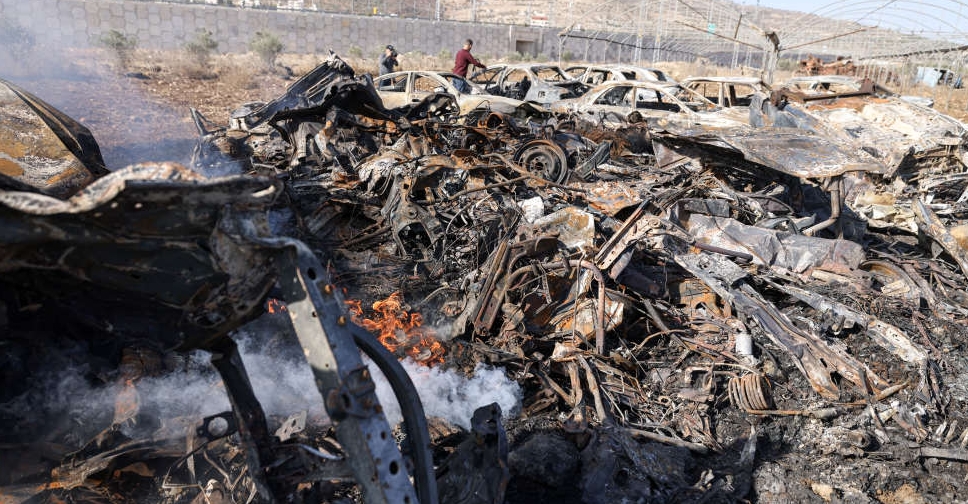 Israeli forces kill two Palestinian teens in escalating West Bank violence
Israeli forces kill two Palestinian teens in escalating West Bank violence
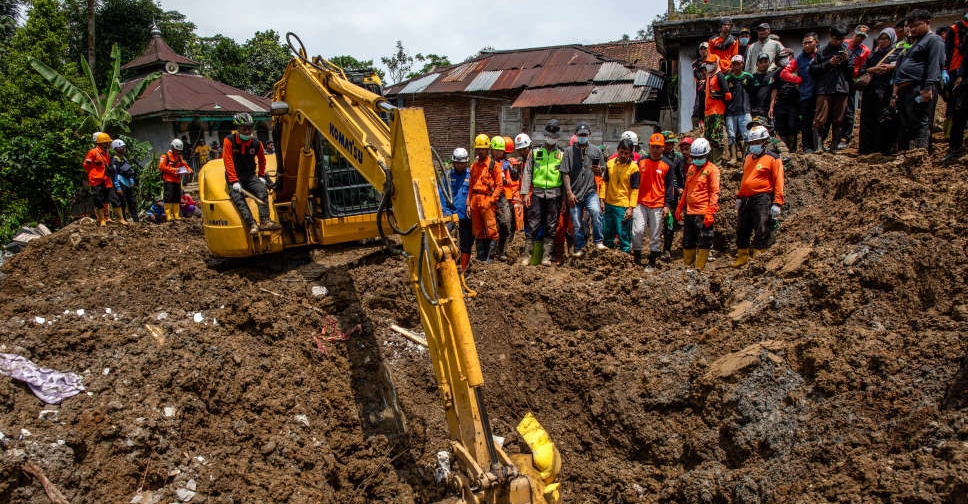 Death toll from Indonesia's Central Java landslides rises to 30
Death toll from Indonesia's Central Java landslides rises to 30
 Draft COP30 deal drops effort for fossil fuel transition agreement
Draft COP30 deal drops effort for fossil fuel transition agreement
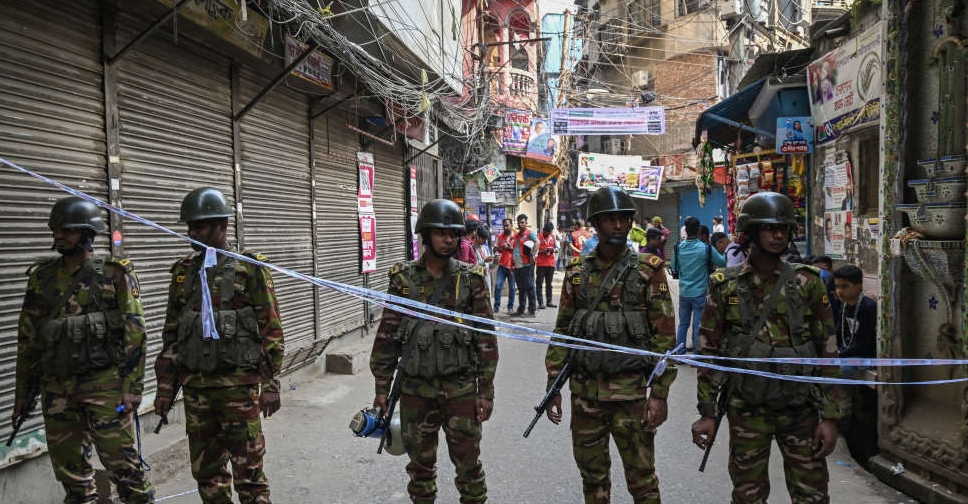 Earthquake jolts Bangladesh, killing five and injuring around 100
Earthquake jolts Bangladesh, killing five and injuring around 100
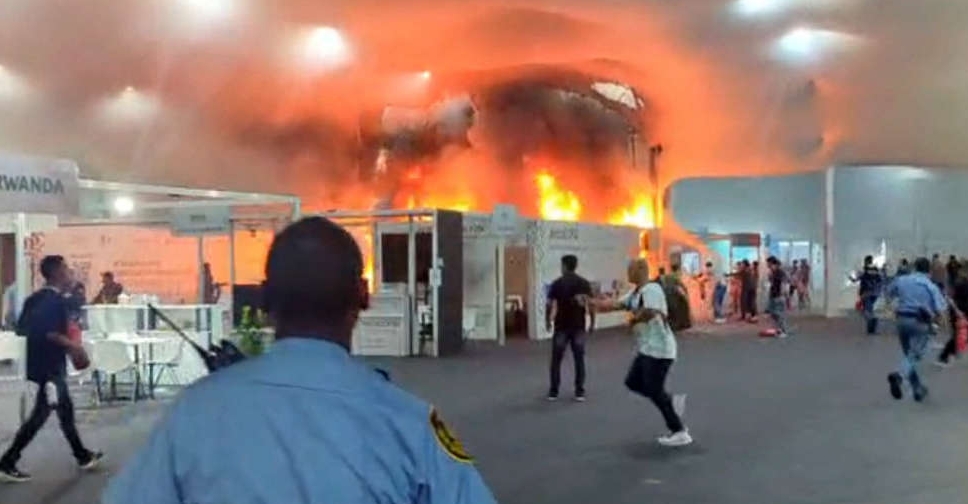 Fire disrupts COP30 climate talks as UN chief urges deal
Fire disrupts COP30 climate talks as UN chief urges deal

